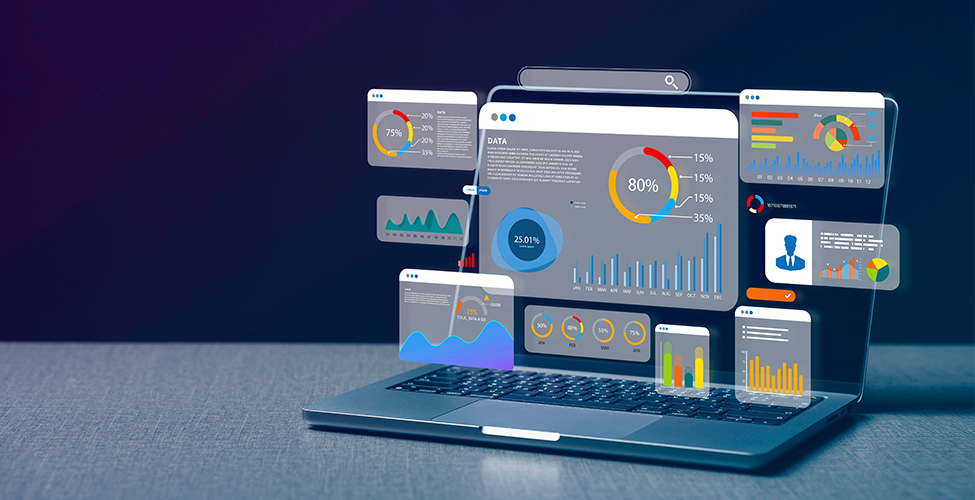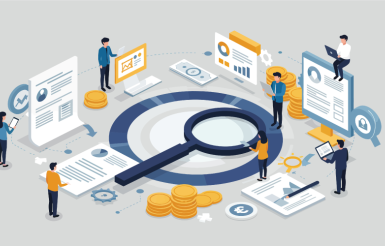Data economy: CNIL strengthens its analysis skills and publishes its work programme
11 July 2023
The protection of personal data requires an understanding of the business models associated with their use and a measurement of the economic impact of regulatory choices. To strengthen its skills in this area, the CNIL has set up a new economic analysis team and is publishing its work programme.

Managing the economic impact of regulation
The digital transformation of the economy, the emergence of major online platforms and the exploitation of data make it increasingly important for the CNIL to strengthen its understanding of the economic issues at stake. Against this backdrop, CNIL decided to fully embrace its "role as a regulator with an economic impact" as part of its 2022-2024 strategic plan.
To further develop its expertise in this area, the CNIL has created a new team responsible for economic analysis. The team's remit is to carry out impact studies, sectoral analyses and quantitative work to inform the CNIL's decision-making, particularly when producing its positions (recommendations, guidelines, etc). It also fosters cooperation with other economic regulators, building on the connections between data protection, innovation and competition policies.
By carrying out in-depth studies and making operational contributions, including statistical, this team supports the work of other CNIL departments and also evaluates certain CNIL decisions and actions.
A new perspective for CNIL
In addition to the legal, technological and ethical approaches, the creation of this team will enhance the CNIL's perspective and expertise in the protection of individuals' rights.
It is also a continuation of the directions taken since 2016 to implement the GDPR, which will foster a digital economy based on trust and better-informed, more rational individual choices when it comes to data.
The first projects
The CNIL, which also fosters dialogue with stakeholders and economic researchers, has already looked at free business models in the digital economy and the economic challenges of data in the mobile application ecosystem, on the basis of a call for evidence to the ecosystem. It has also studied the economic challenges of implementing the Data Governance Regulation.
Other content will be published on a regular basis in a dedicated section soon to be posted on the CNIL website.
The work programme
As part of its medium-term work programme, recently adopted by the CNIL College, the economic analysis team will be working on :
Personal data and competition: cross-regulation
As part of the mission entrusted by the President of the CNIL to Bruno Lasserre, Commissioner of the CNIL and Chairman of the Commission d'accès aux documents administratifs (CADA), the authorities want to strengthen the dialogue between data protection and competition, by adopting a dual economic and legal approach.
The economic aspects of calculating penalties
The aim is to supplement the CNIL's work on calculating the amounts of penalties, in order to strengthen the economic approach of the benefits derived from the breaches observed and the harm to individuals whose data have been processed in breach of the GDPR.
Virtuous business models for privacy
The CNIL will conduct comparative multidisciplinary studies on business models in certain sectors, in order to promote a privacy-friendly market segmentation. This project is already included in its current strategic plan.
The secondary data market
To be able to regulate and control data brokers effectively, the CNIL needs to develop its understanding of all the characteristics of this data market, the economic incentives and the critical points of these business models.
Economic impact assessments of GDPR
Five years after the GDPR came into force, a number of studies exist in the economic literature, which could usefully be supplemented and from which the CNIL could draw some lessons on the costs and benefits of GDPR compliance, the link with competition and innovation and the preferences of consumers.
The economic benefits of having a Data Protection Officer (DPO)
As part of a wider examination of the costs and benefits of complying with the GDPR, the CNIL will be looking at the economic implications for a company of having a data protection officer, well positioned within the company, in relation to its cost.



